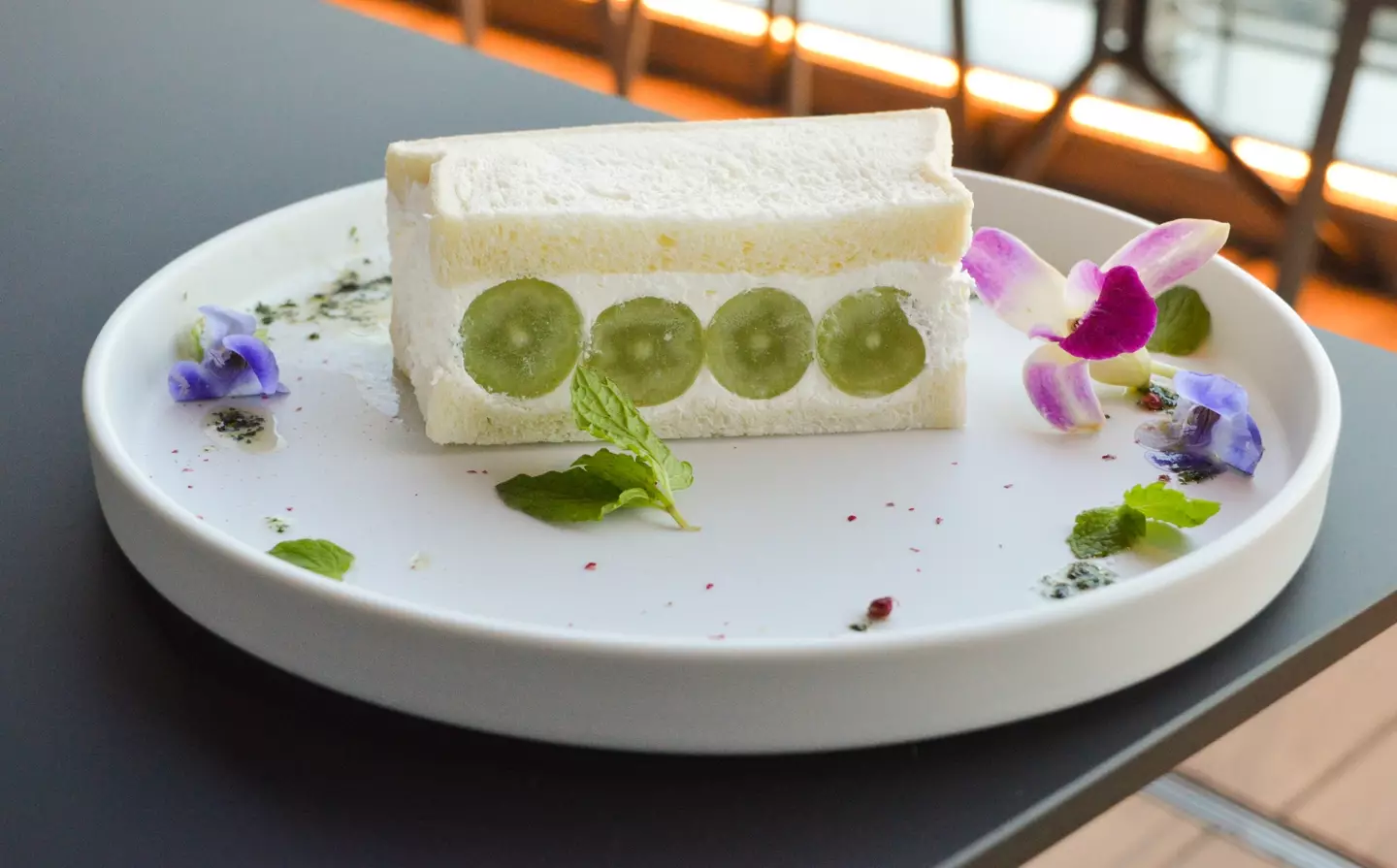
Topics: UK Food
M&S is an absolutely top tier UK supermarket. The prices might be a bit steeper than what you’d expect at Tesco or Sainsbury’s, but you get what you pay for in quality, variety, and a regular influx of exciting new ideas.
One of the latter recently took the shape of a sweet strawberries and cream sandwich inspired by the much-loved Japanese dessert. Before you run for the hills: bread isn’t your typical wholemeal. It’s a sweet, soft variety that’s closer to a sponge cake than it is to a ploughman’s, and it’s proven to be a hit on social media.

It might not prove to be a hit, however, with HMRC.
Advert
The limited edition sandwich was launched just ahead of Wimbledon 2025, retailing at £2.80 in M&S stores up and down the country. It’s packed with fresh strawberries and whipped cream cheese, sandwiched between slices of the aforementioned sweet bread, and it’s the first of its kind in the UK.
While the fruit sandwich might be common fare in Japan, M&S is breaking new ground with it on these shores – as far as supermarkets are concerned, anyway.
“Inspired by the Japanese sweet sandos, recently spotted popping up in London’s trendiest Japanese patisseries, our product developers have long dreamed of creating a dessert sandwich,” M&S said in a statement about its latest viral hit.
But this all begs the question: is it a sandwich, or a cake?
The reason why it could become important is because, if the taxman isn't convinced the product really is a sandwich, it could be subject to extra charges, with desserts subject to 20% VAT in the UK.
The tax quandary was summed up by Simon Knivett, VAT manager at HW Fisher, per SquareMeal.
“If the bread is sweetened and designed to be eaten with fingers, the case for classifying it as confectionery is surprisingly strong,” he said.
Meanwhile, HMRC’s definition of desserts reads: “Any form of food normally eaten with the fingers and made by a cooking process, other than baking, which contains a substantial amount of sweetening matter.”
It seems as though M&S will have a tough time holding firm with its position that the sweet treat is a tax-free sandwich.
A similar disagreement arose in 1991, with Jaffa Cakes being at the centre of a row with HMRC as manufacturer McVitie's fought for VAT exemption on the grounds they’re cakes rather than biscuits.
“Under UK law, VAT on cakes and biscuits is set at 0%,” explained Crunch. “However, crucially, the law states that if a biscuit is partly or wholly covered in chocolate then it is to be taxed at the standard rate.
“HMRC clearly defines the difference as follows: ‘The significance of the borderline between cakes and biscuits is that a cake is zero-rated even if it is covered in chocolate, whereas a biscuit is standard-rated if wholly or partly covered in chocolate or some product similar in taste and appearance’.
“In 1991 Her Majesty’s Customs and Excise – HMRC as we know it today – challenged manufacturer McVities on their orange filled goodies, believing them to be biscuits. McVities fought back.
“The case eventually went to tribunal and, according to rumour, McVities even baked a 12” Jaffa Cake in their quest to prove the fact that they are a cake and not a biscuit.”
Who knew the VAT rules on food were so complicated? Yes, thank you to all the accountants in the room, you can put your hands down.